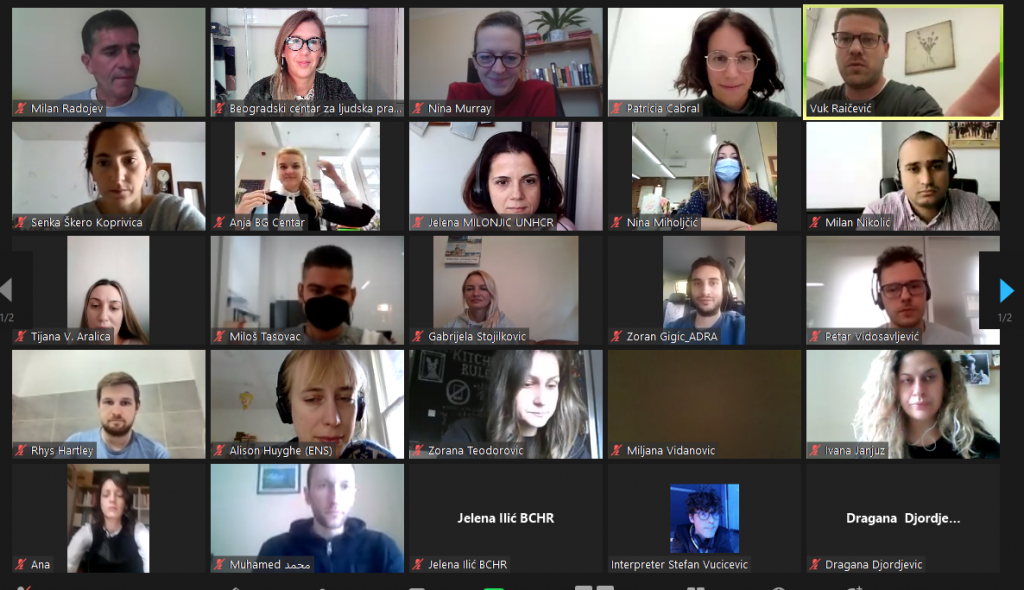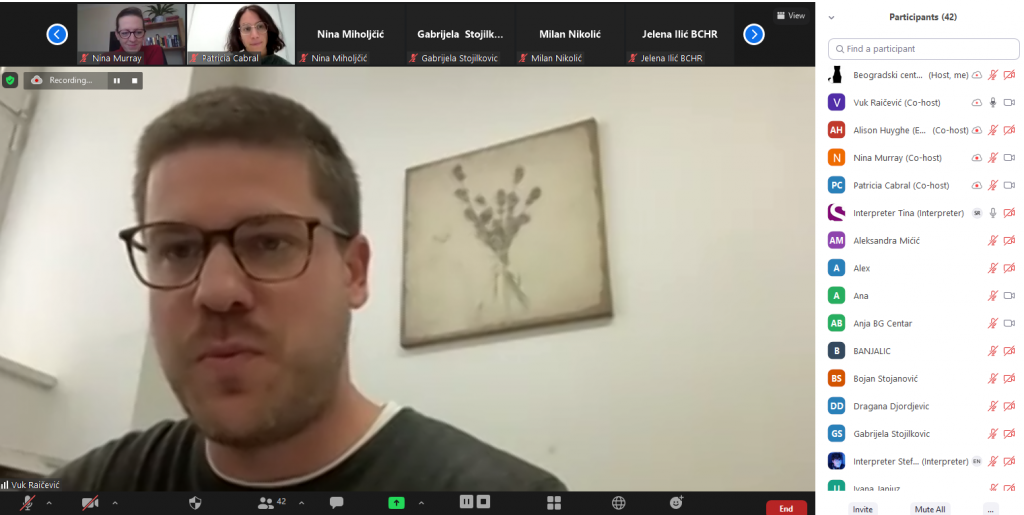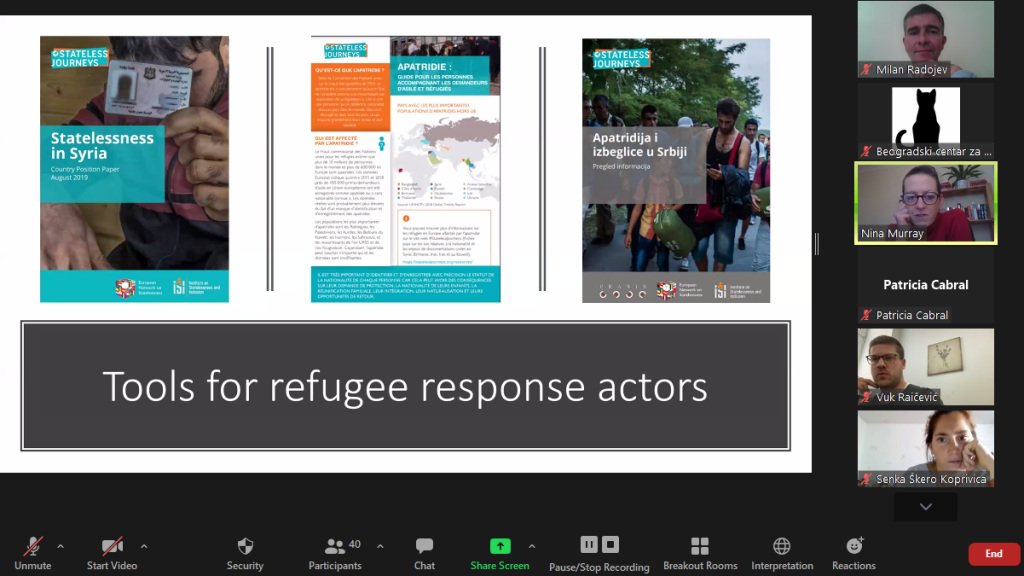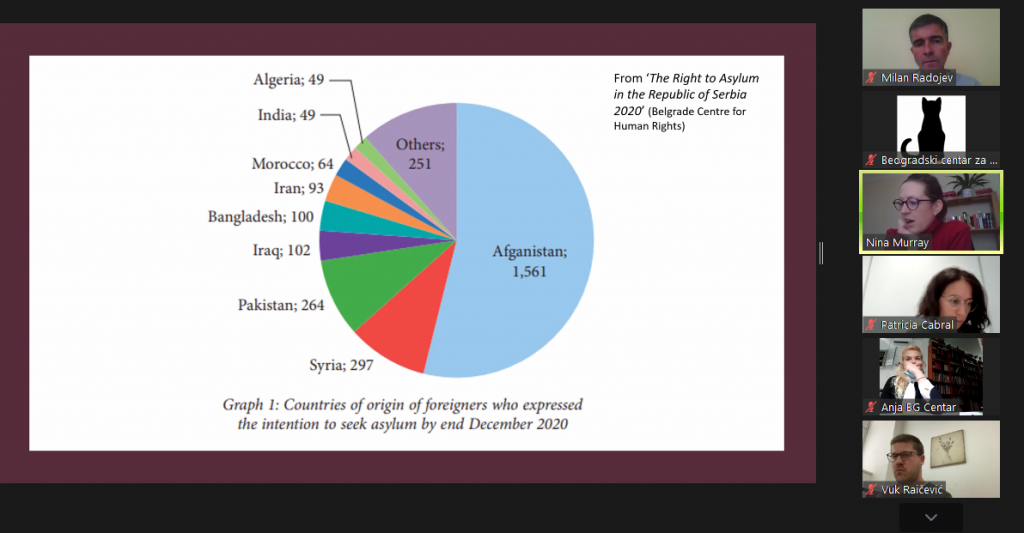Many Health Professionals Think That Their Human Rights Have Been Violated during the COVID-19 Pandemic
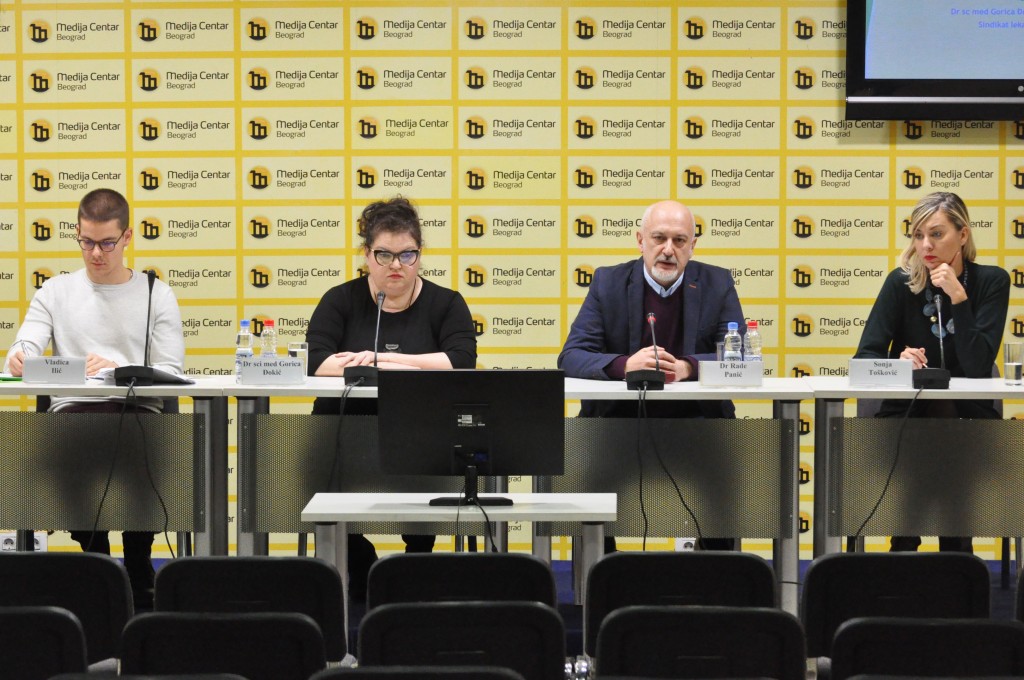 The Trade Union of Doctors and Pharmacists and Doctors of Serbia and the Belgrade Centre for Human Rights (BCHR) presented the results of a survey on respect for human rights of health professionals during the COVID-19 pandemic on the eve of International Human Rights Day marked on 10 December.
The Trade Union of Doctors and Pharmacists and Doctors of Serbia and the Belgrade Centre for Human Rights (BCHR) presented the results of a survey on respect for human rights of health professionals during the COVID-19 pandemic on the eve of International Human Rights Day marked on 10 December.
The answers of doctors and medical technicians who took part in the survey indicate large-scale and diverse violations of their human rights during the COVID-19 pandemic. They singled out breaches of their rights to respect for their private and family life, an effective legal remedy, equality (prohibition of discrimination), freedom of expression, health care and some of their work-related rights.
Most of the respondents were not asked whether they suffered from any chronic diseases or conditions putting them at risk of grave consequences if they were infected with COVID-19 before they were referred to work in the COVID-19 system. The Trade Union’s data indicate that over 130 doctors infected with COVID-19 have died since the pandemic broke out.
A number of respondents said that they worked extremely long hours in COVID-19 hospitals (they worked 12- and 15-hour shifts in hazmat suits), with no breaks or adequate compensation. Some of them reported they were fined for using up PPE (surgical masks) and referred to COVID-19 institutions without any prior training or guidance from specialists (infectologists, pulmonologists or epidemiologists). Most respondents were not asked whether they had underage children before they were referred to COVID-19 hospitals or out-patient clinics.
The survey was presented on 9 December in the Belgrade Media Center by:
- Sonja Tošković, BCHR Executive Director,
- Rade Panić, Chairman of the Trade Union of Doctors and Pharmacists of Serbia,
- Dr. Sc. Med. Gorica Đokić, Trade Union of Doctors and Pharmacists of Serbia, and
- Vladica Ilić, BCHR.
The survey, conducted within a project funded by the Balkan Trust for Democracy, the German Marshall Fund of the United States and USAID, involved use of a structured questionnaire especially designed for health professionals, which was distributed and filled electronically (due to the epidemiological situation) by doctors, nurses and medical technicians across Serbia in the 18-28 October 2021 period, with the support of the Trade Union of Doctors and Pharmacists of Serbia.
Detailed results of the survey on the respect of human rights of health professionals during the COVID- 19 pandemic are available in Serbian here.
Results of the public opinion survey on the status of health professionals during the COVID-19 pandemic and satisfaction with healthcare services is available in Serbian here.








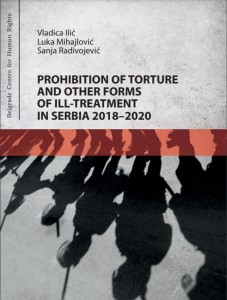
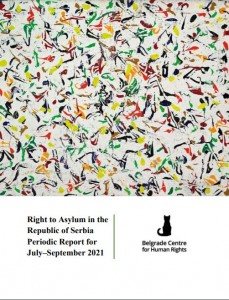
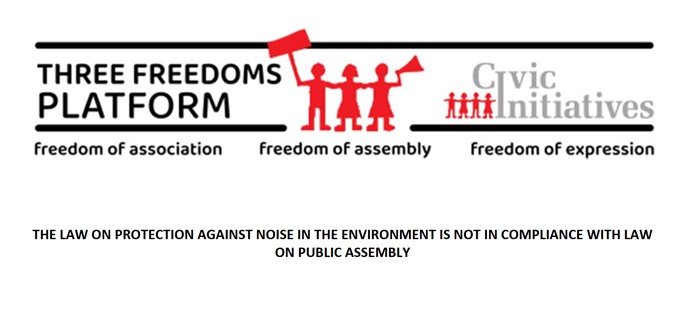 Organizations gathered around the Three Freedoms Platform strongly condemn the arrest of peace activists Aida Ćorović and Jelena Jaćimović, who were brutally detained by plainclothes police while protesting against the mural of convicted war criminal Ratko Mladić. On International Day Against Fascism and Antisemitism, the arrest of human rights activists and taking the side of convicted war criminals shows the true political orientation of the authorities in Serbia.
Organizations gathered around the Three Freedoms Platform strongly condemn the arrest of peace activists Aida Ćorović and Jelena Jaćimović, who were brutally detained by plainclothes police while protesting against the mural of convicted war criminal Ratko Mladić. On International Day Against Fascism and Antisemitism, the arrest of human rights activists and taking the side of convicted war criminals shows the true political orientation of the authorities in Serbia.